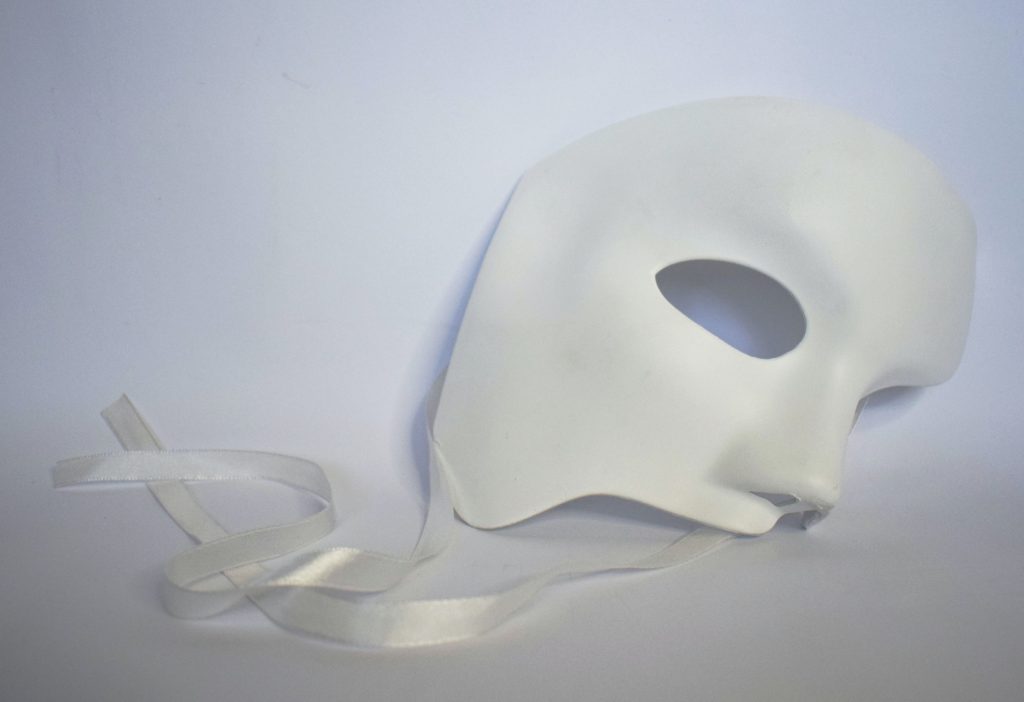Introduction
The conceptualized self may sound like a complicated thing, like a complex vague concept, but it’s actually present in almost every aspect of our lives. When we are meeting new friends, or going into an interview, they all often ask one question. This question is being asked by almost every new person we meet. The question is “tell me more about yourself”?
Often when this question is being asked we usually don’t have the exact answer for it. We tell the other person all those qualities and behaviors that others have told us about ourselves, the ones we like and ones we do not like. Here, the answers that we give are the conceptualized self. In reality, if we closely look into ourselves we will get the idea that the answer to this question can be a lot different from the one we say, as there is also the spiritual dimension of man.
There can be a lot of times when our real identity is being suffered. Sometimes we get into the people’s perception mold because we want to be liked by them. The conceptualized self can often get too hard on us. We might not break it because of the fear that we might lose the ones we love, if we do not act according to how we are usually behaving.
We are human and we have feelings, emotions, thoughts, and many other characteristics as well, that are unique only to us. But identifying with the conceptualized self often destroys all these characteristics, as we are living a life that is defined by a completely different set of feelings, emotions, thoughts, and more.
It is about converting yourself into something that is not you. Or to the identity that people declare for you, as per the social and environmental conceptions that define how ‘you’ are supposed to act, feel, and think, and you are forced to live up to the expectations in a way that is probably not right for you, but you’re used to.
What Exactly Is The Conceptualized Self?
When people say that they are depressed or they are having anxiety because they have been habituated to think and feel that way. Or most of them say that ‘I am very anxious’, or ‘I am very indecisive’. Why is this perception comes in people’s mind?
The idea of being anxious, depressed, indecisive, or any other feeling or thought is something that is being and has been told to them by their friends, family, and environment. Another example that we can take is we are someone’s daughter, son, mother, sister, brother, father, spouse, etc. We have molded our personality into these labels.
Of course, it is how the vast majority of humanity is defining itself, by these external labels, these components of your false identity. In reality, we play the part of all these relations, but they don’t define us. They are not the real us. It is the self-conceptualization that is built-in ourselves by our surroundings.
If you’re reading this it means that you probably know that there is an element in you, and in everyone else, that is greater than what we see on the outside, something that is a lot more than these external labels and is connecting all of us together.
If you were called Alex instead of Daniel, would that change who you really are? If you would like chocolate or vanilla would that change who you really are?
The Identities We Take On
There can be numerous identities that we take on. Likewise, if we are in a situation in which we are having continuous failures. The consecutive failure will lead us to think that we can’t be successful, or that failure is something that is inevitable for us and is a part of who we are.
However, it is only the self-concept that we have built for our identity. People claim us that we are productive, lazy, dominant, useless, and mean. On the other hand, if we look closely at all these labels we will get the idea that we are not born with such labels. It is the surroundings that have given this to us. The identities that we adopt for us are the conceptualized self.
But lies beneath that? And why have we adopted it to begin with? Later on in this article will address these important questions, but we first we have to understand more aspects of how the conceptualized self is affecting our day to day lives and perception about who we are and how the world works.
It Limits What We Are
Undoubtedly, the conceptualized self usually limits us and everyone else. We face different situations each day. Every day we experience something unique. That experience built our selves. On the other hand, our mind is full of chaos. Though our thoughts are not who we are, those who are not used to control their thoughts get lost in them.
We believe that we are something more than the identities but when we are being labeled by such it limits our powers to perceive something as unique, to do something unique, or to be fully present when we are experiencing the world, therefore missing a chance to create something new instead of being stuck in the conceptualized self program.
We grab these identities so firmly that we lose ourselves in their perceptions. The conceptualized self can also break a person. It can take away all your uniqueness. We become what others say we are rather than what we are, another brick in the wall.
The Persona That We Built For Ourselves
Hey, it’s not your fault, right? Everybody does that, everybody is like that, right? When we tell others about ourselves we often say I am the mother/father of two kids. Or we say I am a humble person, I am a social person, and I listen to people.
However, it is just the persona that has been built for ourselves. If we say something that is not being expected we correct it. We stick to the program. Or if we have said something different from what we are we reconcile it. We make sure that what we answer is what we are hearing about ourselves throughout our entire lives.
But what if we’re different today than how we were yesterday? What if the labels, identities, and programs are not representing us anymore? At best, they are only past memories – if at all? Can we change that situation and ‘come back’, finding our true selves and meaning in our lives?
Is It Easy To Break The Conceptualized Self?
At first, when we think about breaking the conceptualized self we rapidly evacuate that thought. We say to ourselves that no it can’t be done. If I am not who I have been for my entire life then who am I? Right? Though it seems like the right thing to do, why does it feel wrong and so hard? Why does this happen?
This is because when you are hearing something from a lifetime it gets very difficult to avoid it. As you get mature it is harder for a person to let go of his built-up persona, as our brains are already wired in a certain way. And after a lifetime of practice, it can be extremely difficult and a huge challenge to reverse it and re-invent ourselves.
But are there things that can help us to succeed if we change to go down this unknown path? Are there people that have completed this transformation and been to ‘the other side’, and can share how’s it like there? Can that really help?
Will You Be Able To Break The Conceptualized Self?
Let’s take an example, and look at a girl that studied medicine for allof her life. After completing the first half of her studies, she realizes that something is missing, something is not right, that she should be doing something else, not medicine. Here, just imagine how difficult it will be for her to convince her friends, family, and entire environment that she has had a change of heart.
And that, of course, is just the tip of iceberg. What if she decides that she wants to change her name, religion, appearance, even her gender. The decision to follow your intuition and gut feeling regarding what you sense that is right for you is not only a bold one, but holds a heavy social cost for those who decide to take it. In some way you are killing who you are, in hope that when you’ll emerge as your new/true self, everyone will accept you.
Similarly, take a look at your situation. You mustn’t be fused or attach your conceptualized self with your true identity. It might happen that when you are trying to change your self-conceptualization it will resist internally as well as externally too. However, if your self-mastery skills are strong enough, it’s only a matter of time until you’ll get there.
Trust Yourself for Breaking Self Conceptualization
You might feel a lot of opposition when you will try to change it. The main factor is how determinant you are to do it, and how you maintain your determination when it gets tough. There are a lot of people in this world who want to be known accepted for what they truly are. Yes, they have all the relations and they love to have labels in their life and they respect it.
But on the other hand, they don’t want to be defined or described by them. They want to break the conceptualized self. Being known for who you really are might be very difficult. There are times when the hard work is so much that you want to give up, when you are exhausted by the efforts and don’t see any progress.
But, if you really want to break the self-conceptualization you have to trust yourself that you can do it.
How Can You Break The Conceptualized Self?
The first and most important factor is to accept yourself. No matter how many faults we have, the first thing is to make ourselves acceptable for ourselves, and then everyone else will either accept you, or they would stop being a part of your life. Once you do that, you’ll begin feeling lighter and lighter with each day passing, as you will stop investing your energy in maintaining these false labels and fake identity components.
The second important thing is to trust the changes, trust the unknown, trust the process. When you let go of the old things and welcome the new ones, whatever their shape and form are, you are entering into a new reality. Obviously, this process can be hard and difficult to do so.
Because you are escaping your conceptualized bubble and making your new one, and these habits are rooted very deep down inside you. Accepting who you are with no ifs and buts, is definitely not easy, but it’s definitely worthwhile and worth the time and energy investment.
Once you are letting go of your expectation on how you are supposed to be and how what you want in life should look like and appear, you are being harmonious, and you are letting life unfold the right changes for you that will enable you to break free out of the cage of the conceptualized self.
Conclusion
The conceptualized self is our own made trap that we have built-in for our personality. Oftentimes, in many aspects of our life, it is hard to come out of the conceptualized self-vessel. It is another word for being suffered. Once you trap inside the self-vessel it is hard to get out of it. It is something that only exists in our minds but in reality, it is far greater than that.
In many parts of our lives, we feel trapped. We get suffocated by the fixed identity we have created for ourselves, the programs, the autopilot reactions, and we want to get freed from it. The perception that we have developed all the years that is rigid and takes time to get a break.
Following what was discussed earlier in this article, there are people that have experienced this liberation, people that we can be inspired and learn from them. A remarkable and rare example of an ultra-successful overcoming of the conceptualized self is the amazing story of Anita Moorjani.
Anita’s overcoming of many religious, social, and cultural prejudices, and false beliefs is pure inspiration. In her truly mind-blowing story of literally coming back from the dead, Anita tells the story of her miraculous overcoming of the conceptualized self that took place after she had been suppressed by her entire social, cultural, and religious environment throughout her entire life.
In life, it might not be easy to break our conceptualized self. To do so we have to bring changes on our own. We may have limited control over how these changes will occur, but we absolutely have control over our decision to begin to change. The time is now.
Always remember, that even tiny increments can add up to a massive life-changing momentum, and that you have the ability to awaken into a new awareness.








